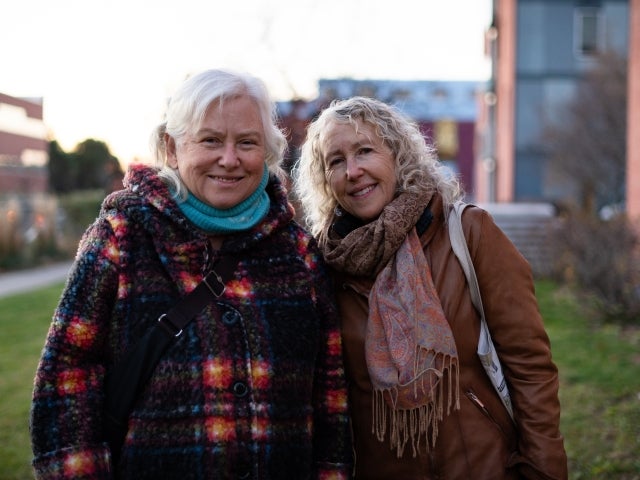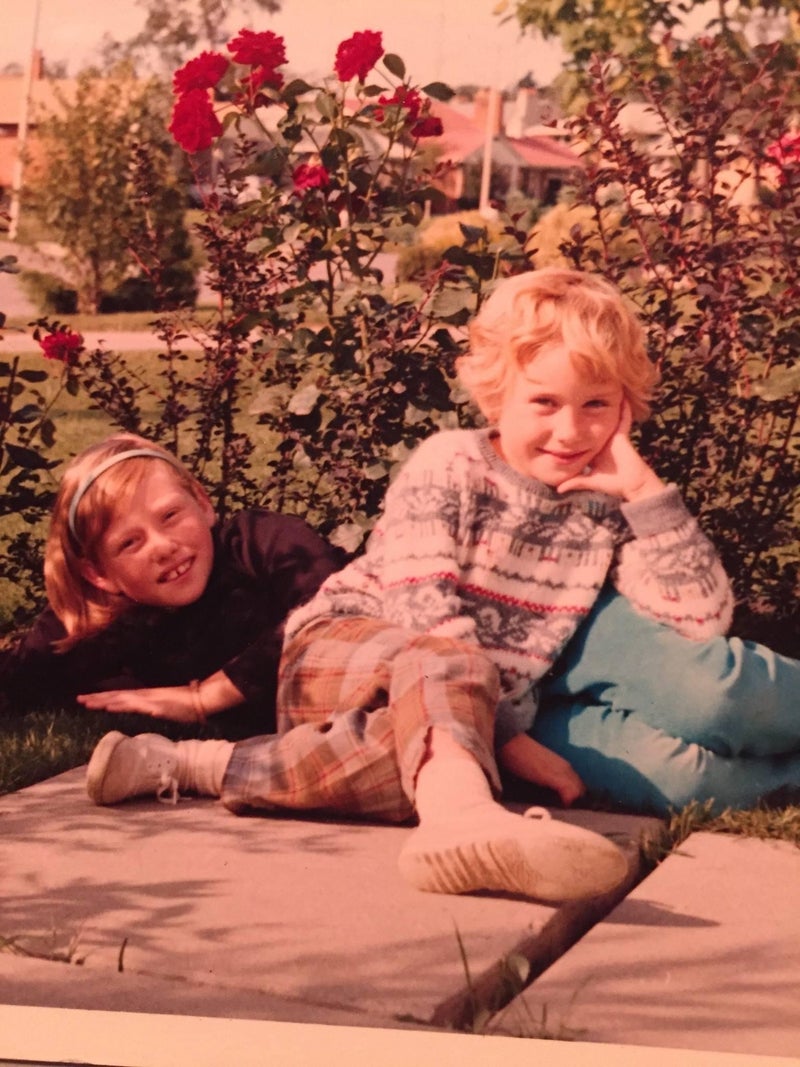Mad Sisters: Grundy’s search for sisterhood


Nancy, left, and Susan Grundy at the Benny Community Garden in November 2024. Photos courtesy of S. Grundy
Most of the books reviewed in our past editions were authored by parents of those who are neurodivergent, or by people who themselves have a diagnosis. This is the first book written by a sister.
Susan Grundy, the author of Mad Sisters, was just 10 years old when her sister, Nancy Grundy, was diagnosed with schizophrenia at the age of 13. Susan, now 67, wrote the memoir over several years. It was published in 2024 by Ronsdale Press.
This is an unflinching account of a family devastated by mental illness, reeling from the reality of the diagnosis, along with the complex web of family dynamics that unfolded amongst Susan, Nancy and their parents. Susan’s own words give the reader an honest accounting, often written in scrupulous, painful detail – though some- times leavened with humour – of more than five decades of family life.
For many reasons, including the frequent absences of their parents, Susan became the caretaker of the family, responsible not only for herself but also for the happiness of her sister and their parents. This began during her own childhood and continued through her whole life. The memoir details not only the losses Susan experienced due to her own limited life choices but also the relentless demands made on her time as manager of her sister’s life. During these years, Nancy spent years in a psychiatric hospital and had several stays in group homes and apartments. Susan organized and packed Nancy for each of these moves, accompanied her to medical appointments and handled every aspect of her financial and emotional life. The demands on Susan’s time increased after she married and had two children of her own, as well as caring for her aging parents. With the deaths of their parents in 2013, Nancy became increasingly dependent on Susan.

Circa 1963, from left, Nancy (9) and Susan (6) Grundy
at their childhood home in Etobicoke, Ontario.
In a recent interview, Susan referred to the writings of psychotherapist Terry Real, who discusses the harm done to a child who becomes the family "hero” or caretaker. When children are given this much responsibility, says Susan, they come to believe that their parents love them not for who they are but for what they do. She describes this as “a tragic love story,” which can have repercussions throughout life, and in her book, she writes about its effects on her own life and relationships.
Readers can benefit from Susan’s further reflections, which include exploring the differences between “caring” and “saving,” and the need to take care of oneself as well as the loved one. On the last page of the book, Susan describes leaving her sister after a nice visit in a coffee shop. They walked down the street holding hands. After she left Nancy, Susan wrote that she put her hands deep into her coat pocket, “still feeling Nancy’s fingers holding mine.”
Despite the heavy subject matter, Mad Sisters “illuminates the potential forwell-being and hope amid the collateral damage from a mental illness diagnosis,”
Susan shared. “Our sister journey is woven with tears and laughter. This brings the story to a larger exploration of the human spirit … the importance of compassion and how the enduring strength of sisterhood (or brotherhood) can be a forcefield for hope and resilience. Without love and caring, we have nothing.”









